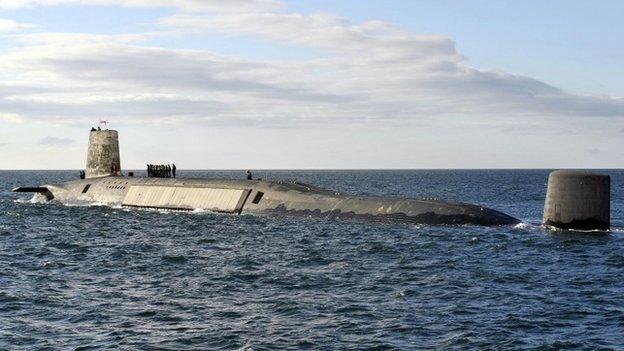Election 2015: Cameron pledges 'paid volunteering leave'
- Published
- comments
Christian Fraser looks at how the volunteering scheme might work
A Conservative government would offer up to 15 million workers three days' paid leave a year for volunteering.
Under the party's plans, a new law would be passed requiring public sector employers and companies with more than 250 employees to give staff up to three days a year to do voluntary work.
David Cameron said the plan would help to "build a stronger society".
But Labour called the plan "irresponsible" and asked where the funding was "going to come from".
Economy
Conservative
Main pledges
- Eliminate the deficit and run an overall surplus by the end of the parliament
- Aim for full employment for all those willing to work
- Use money saved in reducing the benefits cap to fund 3 million apprenticeships
- Triple the number of start-up loans to businesses to 75,000
The Working Time regulations will be amended to make clear people are entitled to 28 days' paid holiday and three days' paid volunteering or serving as a school governor. They would be able to take the time in a block or flexibly.
The prime minister said: "What I want to do here is help people who want to do more to help their communities, to help others to volunteer to build a stronger society."
'Nation of volunteers'
He added: "It will be great to have more people volunteering, more people being school governors, more people putting back into their community.
"Britain is a nation of volunteers and this is going to take this further and faster."
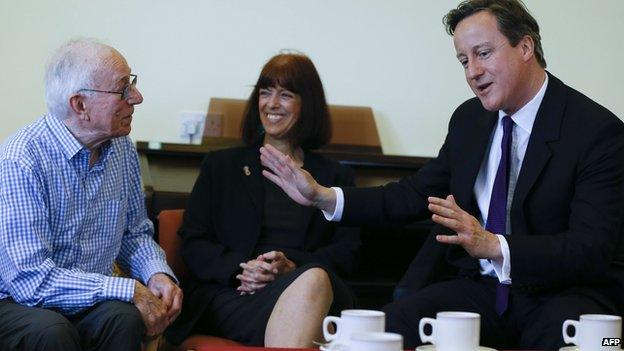
David Cameron says his Big Society policies "have worked"
Cabinet Office minister Rob Wilson told Radio 5 Live: "We hope it will be more, or less, a cost neutral thing because what you can get out of people volunteering is additional motivation and productivity."
He added: "We don't know how many people at this moment will take it up so we can't produce a cost benefit analysis of that as things stand today".
Earlier, Communities Secretary Eric Pickles told BBC Radio 4's Today programme that the scheme would "enhance productivity" but firms would not be "forced" to organise it.
"Nobody is forcing anyone to volunteer. Nobody is forcing companies to organise this volunteering if it causes problems to the company," he said.
"We expect people to have a bit of give-and-take on this as we expect people to have a bit of give-and-take with regard to annual leave."
He rejected suggestions it could prove a financial burden for smaller firms and a logistical headache for organisations such as the NHS which would have to fill in behind those taking time off.
"It would be worked out according to patterns of work and to ensure it did not cause inconvenience to the health service," he said.
'Irresponsible'
Labour's shadow home secretary, Yvette Cooper told BBC Radio 4's the World At One: "If half the nurses in the NHS took this up, the NHS would need 2,000 more nurses to cover the rotas.
"The police would need 800 police to cover the rotas. Who's going to pay for them?
"There's some estimates saying it will cost £1bn in the public sector.
"I think that's irresponsible. They should be telling us where's the money going to come from."
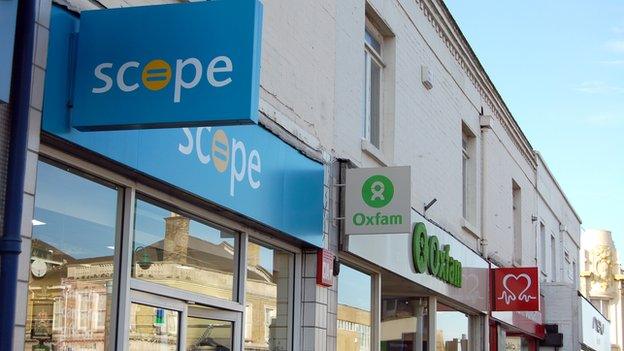
The Conservatives say volunteering has blossomed in the past five years
And Labour pointed out David Cameron had made a similar pledge, external in 2008, while leader of the opposition, in relation to the public sector.
Liberal Democrat leader Nick Clegg said: "The Conservatives have provided no details of how it is going to be paid for.
"We have got lots of over-stretched public services in hospitals and the NHS and so on, how are they going to be able to give people three days off?
"It seems to me, it's got less to do with the actual details of the policy, it's more about the Conservatives swinging back to the Big Society which I thought had been dead and buried by the Conservatives."

How many volunteer?
BBC News correspondent Christian Fraser said figures from the government-commissioned Community Life Survey for 2012-13 showed that 44% of adults volunteered formally at least once in the year, up from 39% in 2010.
Similarly, 29% percent volunteered formally at least once a month, up from 25% in 2010.
This meant a total of 15.2 million giving up their time freely - equivalent to the number the government wants to help with three days' extra leave.
Replacing them with paid staff would cost the economy £24bn, he said.

The volunteering idea was welcomed by the CBI, while Scouts Association president Bear Grylls said it would help nurture "solid communities".
John Cridland, director general of the CBI, said: "Businesses encourage their employees to volunteer in the community and should do even more to increase this. It is a win-win for everyone concerned."
But the Institute of Directors said it smacked of "heavy-handed government intervention".
Director general Simon Walker commented: "Passing a law to compel firms to pay their staff to volunteer for charity is hardly in keeping with the spirit of philanthropy."
The Trades Union Congress (TUC) initially welcomed the proposal as good for union activists, but has since learned the policy could not be used for union activities.
In a later statement, the union said the volunteering plans were "getting more confused by the minute".
BBC home editor Mark Easton said David Cameron's announcement was a reminder of his Big Society theme from the 2010 election "which many had thought had been binned" but the prime minister believed was clearly "in action".
Subscribe to the BBC Election 2015 newsletter, external to get a round-up of the day's campaign news sent to your inbox every weekday afternoon.
- Published10 April 2015
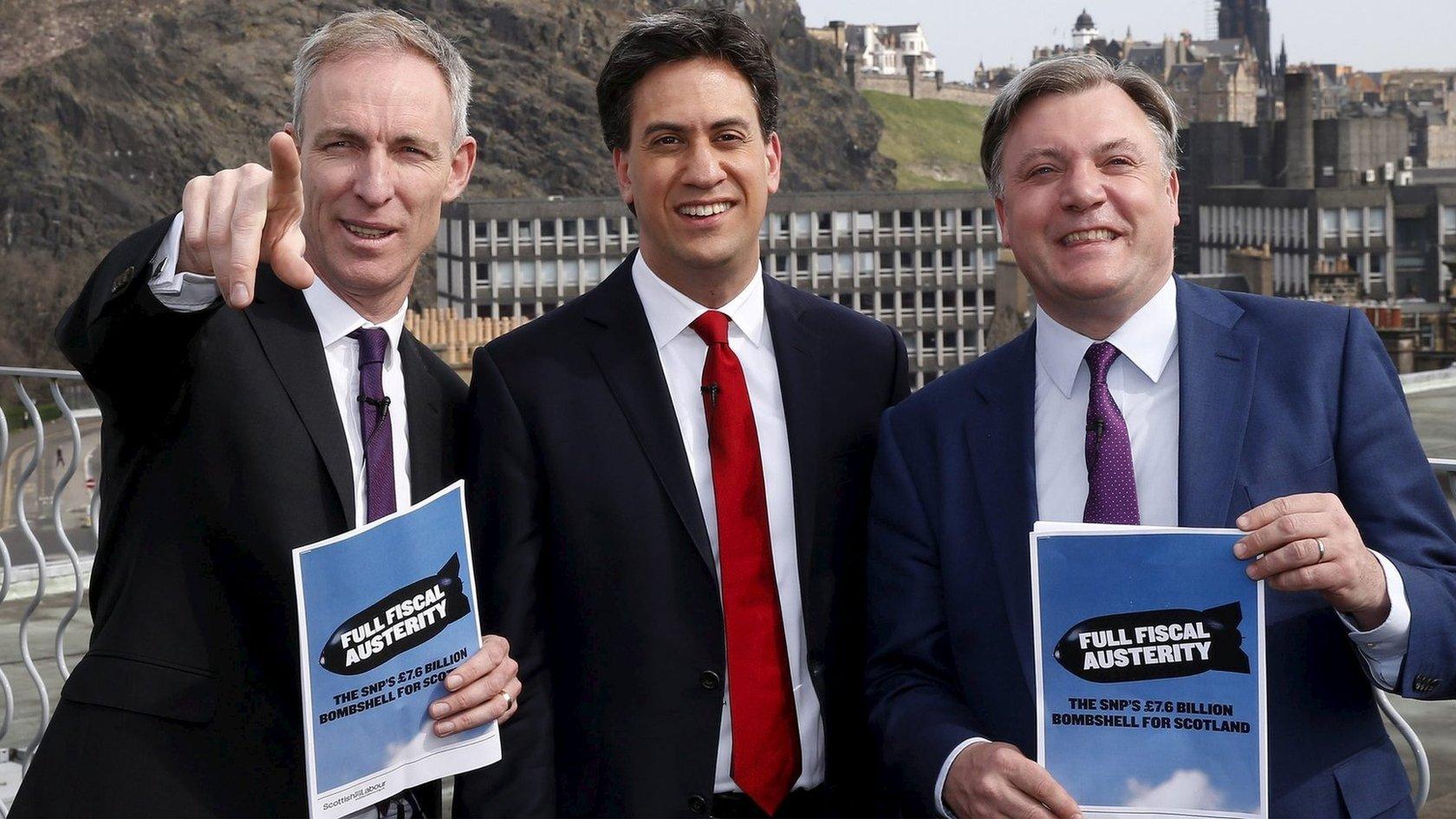
- Published10 April 2015
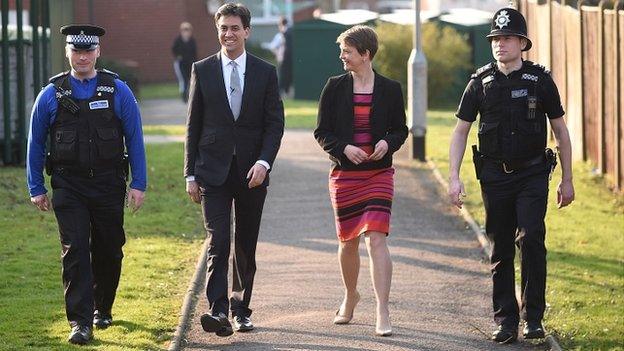
- Published10 April 2015
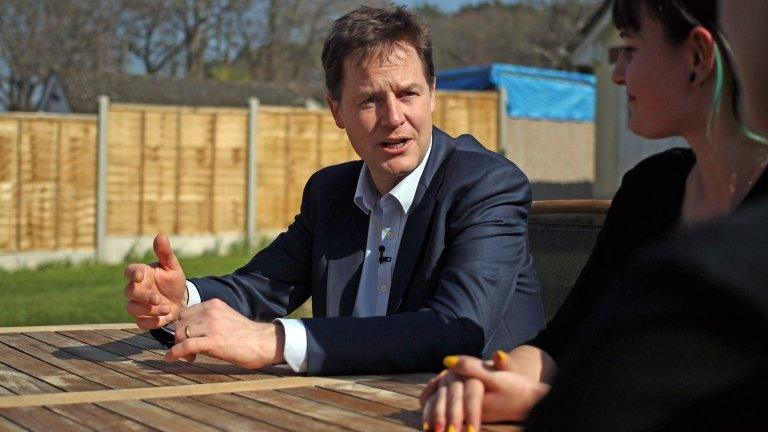
- Published10 April 2015

- Published9 April 2015
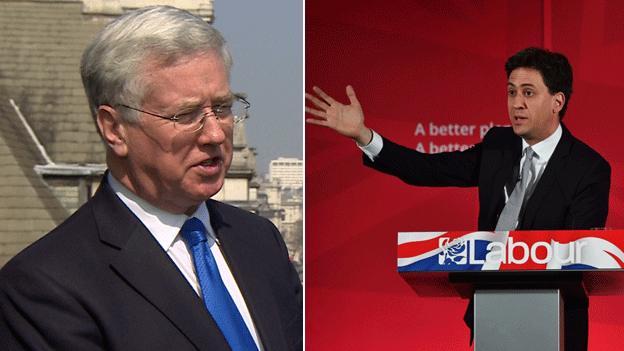
- Published9 April 2015
